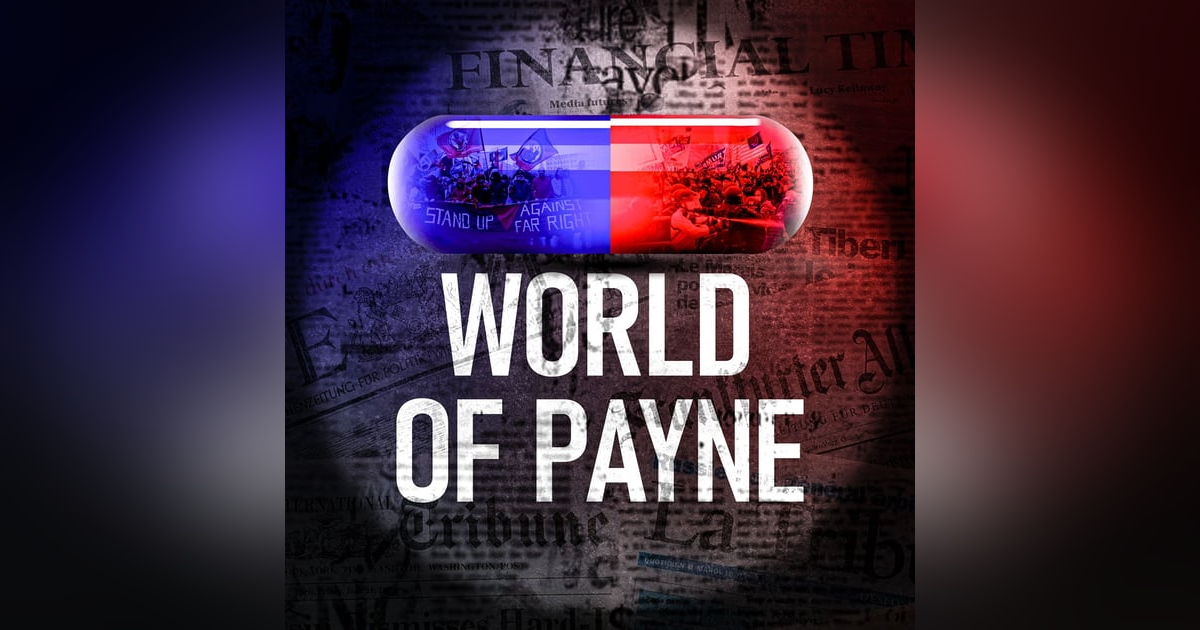The Trump $1 Coin Debate: Legacy, Symbolism, and Public Opinion
The idea of immortalizing a president on a coin is a long-standing tradition in the United States. But what happens when that president is as polarizing as Donald Trump? The recent proposal for a Trump $1 coin has ignited a fierce debate, touching upon historical precedents, political divides, and the very symbolism embedded within our currency. This blog post delves into the arguments for and against such a commemorative coin, exploring the public’s reaction and the broader implications for how we remember our leaders. This discussion is extremely relevant to current events and political discourse, a sample of which is available on the Two Sides Today Ep: 1 Government Shutdown, Drug Boat Destruction, National Guardians episode. In that episode, we addressed the arguments for and against the coin from conservative and liberal perspectives. We hope that this blog post and podcast will give you a better understanding of the nuanced points of view on each side of this issue.
Introduction: The Proposed Trump $1 Coin - A Nation Divided?
The United States has a rich history of honoring its presidents on coins, a practice that dates back to the early days of the republic. From George Washington to John F. Kennedy, these commemorative coins serve as tangible reminders of leadership, historical significance, and national values. However, the proposal to create a Donald Trump $1 coin has sparked a particularly contentious debate. In a nation already deeply divided along political lines, the idea of enshrining Trump's image on a widely circulated coin has become a lightning rod for controversy. Is it a fitting tribute to a president who profoundly impacted American politics, or a divisive symbol that further exacerbates existing tensions? This is what we aim to explore.
Historical Precedent: Honoring Presidents on U.S. Currency
The tradition of featuring presidents on U.S. currency is a well-established one, but it's not without its nuances. George Washington, though never depicted on a circulating coin during his lifetime, set the stage for future presidential tributes. Later presidents, like Abraham Lincoln, Thomas Jefferson, and Franklin D. Roosevelt, have all been prominently featured on various denominations. The Presidential $1 Coin Program, which ran from 2007 to 2016, honored each deceased president in order of their term in office. However, there have also been instances where proposed presidential coin designs were met with resistance or were ultimately rejected. The decision to honor a president on currency is not simply a matter of following precedent; it involves careful consideration of their legacy, their contributions to the nation, and the prevailing political climate. It also involves legal procedures and Congressional approval in many cases.
The Case FOR a Trump $1 Coin: Legacy and Recognition
Proponents of a Trump $1 coin argue that it would be a fitting recognition of his presidency and its lasting impact on American society. They point to his accomplishments, such as tax cuts, deregulation, and the appointment of conservative judges, as evidence of his transformative leadership. They also highlight his ability to connect with a segment of the population that felt overlooked by the political establishment. Supporters also contend that denying Trump a place on U.S. currency would be a form of political censorship, unfairly erasing his contributions from the historical record. They argue that every president, regardless of their political affiliation, deserves to be recognized for their time in office, and that a commemorative coin is a fair and appropriate way to do so. This speaks to the idea of leaving it up to the voters and history to decide how a president should be evaluated in the long term, rather than immediately judging a president as soon as they leave office. Moreover, the creation of a Trump $1 coin could be seen as a way to unify the country by acknowledging the diverse perspectives and beliefs that exist within it. It could serve as a reminder that even in times of division, it is important to respect and recognize the contributions of all who have served in the highest office.
The Case AGAINST a Trump $1 Coin: Political Division and Symbolism
Opponents of a Trump $1 coin argue that it would be a deeply divisive symbol, given the controversy surrounding his presidency and the ongoing debates about his legacy. They point to his policies on immigration, trade, and climate change, as well as his rhetoric and behavior, as reasons why he should not be honored on U.S. currency. Critics also contend that a Trump $1 coin would be seen as an endorsement of his political views and actions, which they believe are harmful to the country. They argue that it would send the wrong message to future generations about what qualities and values are worthy of admiration and commemoration. Furthermore, the creation of a Trump $1 coin could be seen as a way to further polarize the country, by exacerbating existing tensions and divisions. It could serve as a constant reminder of the political battles of the past, making it more difficult to move forward and find common ground.
Public Opinion: A Polarized Response
Unsurprisingly, public opinion on the proposed Trump $1 coin is sharply divided along political lines. Polls and surveys reveal a stark contrast in attitudes, with Republicans generally favoring the idea and Democrats overwhelmingly opposing it. This polarization reflects the broader political landscape in the United States, where partisan divides have deepened in recent years. The debate over the Trump $1 coin is just one example of how these divisions manifest themselves in everyday life, extending even to seemingly symbolic issues like currency design. However, even within each political party, there is some variation in opinion. Some Republicans may have reservations about honoring Trump on a coin, while some Democrats may believe that every president deserves to be recognized, regardless of their political views. Understanding these nuances is essential for navigating the complexities of this debate.
Constitutional and Legal Considerations
The process of creating a new U.S. coin is governed by specific constitutional and legal procedures. The United States Mint, under the Department of the Treasury, is responsible for designing and producing coins, but any significant changes to currency design typically require congressional approval. The Coinage Act of 1792, as amended over the years, provides the legal framework for the production of U.S. coins. This act outlines the denominations, designs, and specifications of various coins, as well as the procedures for introducing new coins into circulation. In the case of a Trump $1 coin, Congress would need to pass legislation authorizing its creation. This legislation would likely specify the design, composition, and mintage of the coin, as well as any other relevant details. The bill would then need to be signed into law by the president. Any legal challenges to the creation of a Trump $1 coin would likely focus on issues such as freedom of speech, equal protection, and the government's power to regulate currency. The courts would need to weigh these competing interests and determine whether the coin is constitutional.
Economic Impact: Minting, Distribution, and Collectibility
The creation of a new coin can have significant economic implications, both for the government and for the public. The United States Mint would incur costs associated with designing, producing, and distributing the Trump $1 coin. These costs would need to be weighed against the potential revenue generated from the sale of the coins to collectors and the general public. The distribution of the Trump $1 coin would also require careful planning, to ensure that it reaches all parts of the country and is available to those who want to obtain it. The Mint would likely work with banks and other financial institutions to distribute the coins through regular channels. The collectibility of the Trump $1 coin is another important factor to consider. Coins with unique designs or historical significance often become highly sought after by collectors, which can drive up their value. The potential for the Trump $1 coin to become a valuable collectible could generate significant revenue for the government and benefit coin enthusiasts. Additionally, the potential economic benefits of increased tourism and interest in numismatics should be considered. A controversial coin could be a boost to both industries. It is not necessarily the goal to create controversy, but it could be a side effect.
Alternative Ways to Commemorate a Presidency
If a Trump $1 coin is deemed too controversial or divisive, there are other ways to commemorate his presidency. One option would be to create a non-circulating commemorative coin, which would be sold to collectors but would not be used in general circulation. This would allow the government to recognize Trump's presidency without potentially alienating or offending a large segment of the population. Another option would be to create a presidential library or museum dedicated to Trump's life and career. These institutions serve as valuable resources for historians, researchers, and the general public, providing insights into the presidencies of past leaders. The former president himself has already begun working on this effort. A third option would be to establish a scholarship or fellowship in Trump's name, to support students and researchers in fields such as business, economics, or public policy. This would be a way to honor his legacy while also contributing to the advancement of knowledge and education. Each of these alternatives would have its own advantages and disadvantages, and the choice of which one to pursue would depend on a variety of factors, including political considerations, economic constraints, and the overall goal of commemoration.
The Broader Context: Political Climate and Historical Memory
The debate over the Trump $1 coin is taking place within a broader context of political polarization and contested historical memory. In recent years, there has been a growing awareness of the ways in which history is shaped by power, ideology, and perspective. The monuments, memorials, and symbols that we choose to commemorate reflect our values and priorities as a society. The decision of who to honor and how to honor them is not always straightforward, and it can be fraught with controversy and conflict. As we grapple with the legacy of Donald Trump's presidency, it is important to consider the broader implications of our choices for how we remember the past. Do we want to create a narrative of national unity, or do we want to acknowledge the divisions and conflicts that have shaped our history? Do we want to celebrate certain leaders and accomplishments, or do we want to challenge the dominant narratives and offer alternative perspectives? These are the questions that we must confront as we consider the future of historical memory in the United States.
Conclusion: A Coin of Contention or a Symbol of History?
The proposed Trump $1 coin has become a symbol of the deep divisions that exist within American society. While some see it as a fitting tribute to a president who profoundly impacted the nation, others view it as a divisive symbol that further exacerbates existing tensions. Ultimately, the decision of whether or not to create a Trump $1 coin will depend on a complex interplay of political, economic, and legal factors. It will also depend on the ability of Americans to engage in a respectful and open-minded dialogue about their shared history and values. Regardless of the outcome, the debate over the Trump $1 coin serves as a reminder of the power of symbols and the importance of understanding the different perspectives that exist within our society. This controversy, and many others, are important to stay up to date on. To help you with this, check out the Two Sides Today Ep: 1 Government Shutdown, Drug Boat Destruction, National Guardians episode. We hope that this discussion has enlightened you on this ongoing discussion.



